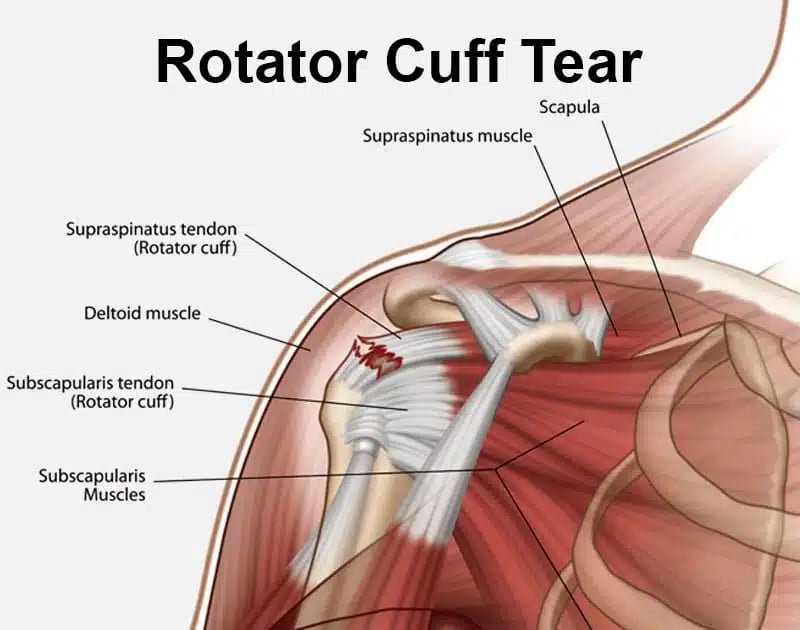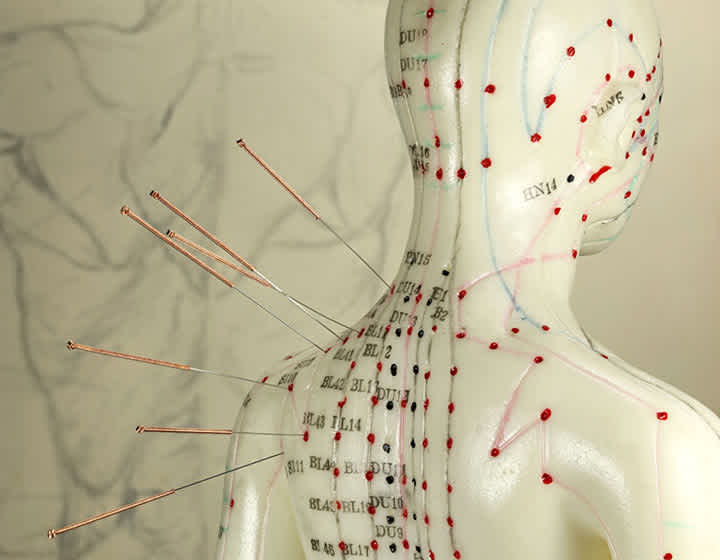Acupuncture for Shoulder Pain in Tokyo: A Comprehensive Guide to Relief and Recovery
Shoulder pain is a common ailment that can significantly impact daily life, from limiting mobility to disrupting sleep and work. Whether it’s a dull ache, sharp discomfort, or persistent stiffness, shoulder pain can arise from various causes, including injuries, overuse, or underlying medical conditions. Acupuncture, a time-tested practice rooted in Traditional Oriental Medicine (TOM), has gained widespread recognition as an effective, natural treatment for shoulder pain. In this article, we’ll explore the causes and symptoms of shoulder pain, how acupuncture provides relief, scientific evidence supporting its efficacy, what to expect during treatment, and complementary strategies for prevention and long-term recovery. If you’re seeking a holistic approach to managing shoulder pain, this guide is your roadmap to relief.
- Understanding Shoulder Pain
- Symptoms of Shoulder Pain
- Common Causes of Shoulder Pain
- 1. Poor Sleep Posture
- 2. Unsuitable Pillow or Mattress
- 3. Rotator Cuff Injuries
- 4. Frozen Shoulder (Adhesive Capsulitis)
- 5. Muscle Tension and Stress
- 6. Arthritis
- 7. Bursitis
- 8. Referred Pain
- 9. Injuries or Trauma
- 10. Overuse or Repetitive Strain
- What Is Acupuncture?
- How Acupuncture Treats Shoulder Pain
- 1. Relieves Muscle Tension and Stiffness
- 2. Reduces Inflammation
- 3. Provides Natural Pain Relief
- 4. Addresses Stress and Anxiety
- 5. Improves Joint Mobility
- 6. Supports Healing of Injuries
- 7. Improves Sleep Quality
- Scientific Evidence Supporting Acupuncture for Shoulder Pain
- What to Expect During an Acupuncture Session
- 1. Initial Consultation
- 2. Personalized Treatment Plan
- 3. Needle Insertion
- 4. Needle Retention and Adjunct Therapies
- 5. Post-Treatment
- Safety and Side Effects
- How Many Sessions Are Needed?
- Complementary Strategies to Enhance Acupuncture’s Effectiveness
- 1. Optimize Sleep Posture
- 2. Invest in a Supportive Pillow and Mattress
- 3. Practice Gentle Stretching and Exercises
- 4. Apply Heat or Cold Therapy
- 5. Manage Stress
- 6. Maintain Good Posture
- 7. Stay Active
- 8. Address Ergonomic Issues
- Who Should Avoid Acupuncture?
- Finding a Qualified Acupuncturist
- When to Seek Medical Attention
- Conclusion
Understanding Shoulder Pain
The shoulder is one of the most mobile joints in the body, relying on a complex network of bones, muscles, tendons, ligaments, and nerves to function. This intricate structure, known as the shoulder girdle, includes the humerus, scapula, and clavicle, supported by the rotator cuff muscles and tendons. While its mobility allows for a wide range of motion, it also makes the shoulder prone to injury and pain.
Maybe You Need:
Shoulder pain can be acute (short-term, often due to injury) or chronic (lasting more than three months, often due to repetitive strain or degenerative conditions). It may be localized to the shoulder or radiate to the neck, arm, or upper back. Morning shoulder pain, a common complaint, is often linked to sleep posture or underlying conditions exacerbated during rest.

Symptoms of Shoulder Pain
Shoulder pain can manifest in various ways, including:
- Stiffness or reduced range of motion (e.g., difficulty lifting the arm).
- Dull, aching, or sharp pain in the shoulder, upper arm, or shoulder blade.
- Muscle soreness or spasms.
- Tingling, numbness, or weakness in the arm or hand (if nerves are involved).
- Pain that worsens at night or upon waking (morning shoulder pain).
Understanding the causes of shoulder pain is essential for effective treatment, and acupuncture offers a unique approach to addressing both symptoms and root causes.
Common Causes of Shoulder Pain
Shoulder pain can result from a wide range of factors, from lifestyle habits to medical conditions. Below are the primary causes:
1. Poor Sleep Posture
Sleeping in positions that strain the shoulder, such as lying on one side with the arm trapped under the body or head propped too high, can cause morning shoulder pain. Prolonged pressure on the shoulder joint or rotator cuff during sleep can lead to stiffness and discomfort upon waking.
2. Unsuitable Pillow or Mattress
An unsupportive pillow or mattress can misalign the spine and shoulder, contributing to pain. A pillow that is too high or too low can strain the neck and shoulders, while a sagging mattress can fail to support the body’s natural alignment, exacerbating shoulder discomfort.
3. Rotator Cuff Injuries
The rotator cuff, a group of four muscles and tendons stabilizing the shoulder, is prone to injuries like:
- Tears: Partial or complete tears from trauma or overuse.
- Tendinitis: Inflammation of the rotator cuff tendons, often due to repetitive motions.
- Impingement: When tendons are pinched during arm movements, causing pain and inflammation.

4. Frozen Shoulder (Adhesive Capsulitis)
Frozen shoulder is characterized by stiffness and pain that progressively worsen, limiting range of motion. It often develops after prolonged immobility (e.g., post-surgery) or in association with conditions like diabetes.
5. Muscle Tension and Stress
Stress and anxiety can cause unconscious clenching of the shoulder and neck muscles, leading to tension and pain. Poor posture during the day, such as slouching or hunching over a desk, can also strain the shoulder muscles, with discomfort peaking in the morning.
6. Arthritis
- Osteoarthritis: Wear and tear of the shoulder joint cartilage, common in older adults.
- Rheumatoid arthritis: An autoimmune condition causing joint inflammation and pain. Both types can lead to chronic shoulder pain, often worse after periods of inactivity like sleep.
7. Bursitis
Inflammation of the bursa (fluid-filled sacs cushioning the shoulder joint) can cause pain, especially during movement or pressure, contributing to morning stiffness.
8. Referred Pain
Shoulder pain can sometimes originate from other areas, such as:
- Cervical spine issues: Herniated discs or nerve compression in the neck can radiate pain to the shoulder.
- Heart or lung conditions: Though rare, conditions like heart disease or lung issues can cause referred shoulder pain (seek immediate medical attention if accompanied by chest pain or shortness of breath).
9. Injuries or Trauma
Previous injuries, such as dislocations, fractures, or sprains, can lead to recurring shoulder pain, particularly if not fully healed. Morning pain may result from sleeping on the affected shoulder.
10. Overuse or Repetitive Strain
Repetitive activities, such as lifting, throwing, or typing, can strain the shoulder muscles and tendons, leading to pain that’s more noticeable after rest.
What Is Acupuncture?
Acupuncture is a 2,500-year-old TOM practice that involves inserting thin, sterile needles into specific acupoints to restore balance and promote healing. In TOM, health depends on the flow of vital energy through meridians. Pain or illness occurs when this flow is disrupted. Acupuncture corrects these imbalances by stimulating acupoints, which are linked to specific organs and systems.
From a Western perspective, acupuncture:
- Stimulates the nervous system to release pain-relieving chemicals like endorphins and serotonin.
- Improves blood circulation to reduce inflammation and promote tissue repair.
- Relaxes tense muscles and modulates pain signals.
- Regulates the autonomic nervous system to reduce stress and improve sleep.
Acupuncture is widely recognized for managing pain, including shoulder pain, and is endorsed by organizations like the World Health Organization (WHO) for its therapeutic benefits.
How Acupuncture Treats Shoulder Pain
Acupuncture addresses both the symptoms and underlying causes of shoulder pain, including morning stiffness, offering a holistic approach to relief. Here’s how it works:
1. Relieves Muscle Tension and Stiffness
Shoulder pain often stems from tight muscles caused by poor posture, stress, or overuse. Acupuncture targets acupoints like LI15 (Jianyu) on the shoulder, SI9 (Jianzhen) near the shoulder blade, and LI4 (Hegu) on the hand to relax muscles, improve flexibility, and reduce stiffness. This is particularly effective for morning shoulder pain caused by sleep posture.
2. Reduces Inflammation
Conditions like rotator cuff tendinitis, bursitis, or arthritis involve inflammation in the shoulder joint or surrounding tissues. Acupuncture enhances blood flow, delivering oxygen and nutrients while removing inflammatory substances, reducing swelling and discomfort.
3. Provides Natural Pain Relief
Acupuncture stimulates the release of endorphins and other neurotransmitters, acting as the body’s natural painkillers. This reduces pain perception without medications, making it ideal for those seeking drug-free relief.
4. Addresses Stress and Anxiety
Stress contributes to shoulder pain by causing muscle tension. Acupuncture has a calming effect on the nervous system, lowering cortisol levels and promoting relaxation. This helps prevent stress-related shoulder pain from worsening during sleep.
5. Improves Joint Mobility
For conditions like frozen shoulder or arthritis, acupuncture can improve range of motion by relaxing tight muscles and reducing joint inflammation. This enhances shoulder function and reduces morning stiffness.
6. Supports Healing of Injuries
Acupuncture promotes tissue repair by increasing blood flow and stimulating the body’s healing mechanisms. This is beneficial for rotator cuff injuries, sprains, or post-surgical recovery, helping to alleviate chronic shoulder pain.
7. Improves Sleep Quality
Poor sleep quality or sleeping on the affected shoulder can exacerbate pain. Acupuncture regulates the autonomic nervous system, promoting deeper, more restorative sleep and reducing the likelihood of waking with shoulder discomfort.

Scientific Evidence Supporting Acupuncture for Shoulder Pain
A robust body of research supports acupuncture’s effectiveness for shoulder pain. Key studies include:
- A 2018 meta-analysis in The Journal of Alternative and Complementary Medicine found that acupuncture significantly reduced pain and improved function in patients with chronic shoulder pain compared to sham acupuncture or no treatment.
- A 2016 study in Pain Medicine showed that acupuncture was effective for relieving pain and improving mobility in patients with frozen shoulder, with effects lasting up to three months.
- A 2020 review in Evidence-Based Complementary and Alternative Medicine concluded that acupuncture combined with physical therapy was more effective than physical therapy alone for rotator cuff injuries.
- A 2017 study in Acupuncture in Medicine found that acupuncture reduced pain and disability in patients with shoulder impingement syndrome, with improvements sustained at six-month follow-up.
While further research is needed, the evidence highlights acupuncture’s value as a safe, effective treatment for shoulder pain.
What to Expect During an Acupuncture Session
If you’re considering acupuncture for shoulder pain, here’s what to expect:
1. Initial Consultation
The acupuncturist will conduct a thorough assessment, asking about your shoulder pain, sleep habits, lifestyle, and medical history. They may examine your tongue, pulse, or shoulder mobility to identify imbalances according to TOM principles.
2. Personalized Treatment Plan
The acupuncturist will design a treatment plan targeting acupoints related to the shoulder, neck, and systemic health. Common points include LI15, SI9, LI4, and GB21 (Jianjing) on the shoulder.
3. Needle Insertion
You’ll lie or sit comfortably, and the acupuncturist will insert thin, sterile needles (0.12-0.35 mm in diameter) into the selected acupoints. Most patients feel minimal discomfort, often describing a slight pinch, tingling, or warmth. The process is typically relaxing.
4. Needle Retention and Adjunct Therapies
The needles remain in place for 15-30 minutes. The acupuncturist may use:
- Electroacupuncture: Applying a mild electrical current to enhance stimulation.
- Moxibustion: Burning mugwort near the skin to warm acupoints and improve circulation.
- Cupping: Using suction cups to relieve muscle tension and promote blood flow.
- Tui Na: A TOM massage to relax muscles and improve energy flow.
5. Post-Treatment
After needle removal, you may experience immediate relief or gradual improvement over days. The acupuncturist may recommend a series of sessions (e.g., weekly for 4-12 weeks) and provide lifestyle advice.

Safety and Side Effects
Acupuncture is safe when performed by a licensed practitioner. Rare side effects include mild bruising, soreness, or temporary fatigue. Choose a certified acupuncturist with a clean clinic to minimize risks.
How Many Sessions Are Needed?
The number of sessions depends on the severity and cause of shoulder pain:
- Acute shoulder pain: 4-6 sessions over 2-4 weeks may provide significant relief.
- Chronic shoulder pain: 8-12 sessions or more, followed by maintenance treatments every 1-2 months, may be necessary. Many patients notice improvement after 1-3 sessions, but consistent treatment addresses underlying causes and prevents recurrence.
Complementary Strategies to Enhance Acupuncture’s Effectiveness
To maximize acupuncture’s benefits and prevent shoulder pain, incorporate these strategies:
1. Optimize Sleep Posture
Adopt a sleep position that minimizes shoulder strain:
- Back sleeping: Use a low pillow to keep the neck and shoulders aligned. Place a small pillow under the affected shoulder for support.
- Side sleeping: Sleep on the unaffected side with a pillow that keeps your head level with your spine. Hug a body pillow to prevent rolling onto the painful shoulder.
- Avoid sleeping on the affected shoulder or stomach sleeping, which strains the joint.
2. Invest in a Supportive Pillow and Mattress
A pillow that supports the neck and shoulders is essential. Options include:
- Cervical pillows: Cradle the neck to maintain alignment.
- Memory foam pillows: Conform to the head and neck for consistent support.
- Adjustable pillows: Allow customization of height and firmness. Replace pillows every 1-2 years and ensure your mattress is medium-firm to support the spine. A worn-out mattress can exacerbate shoulder pain, so consider upgrading if needed.
3. Practice Gentle Stretching and Exercises
Shoulder stretches and exercises complement acupuncture by improving mobility and strength. Try:
- Pendulum stretch: Let the affected arm hang down and swing gently in circles to loosen the joint.
- Shoulder rolls: Roll shoulders backward and forward to relieve tension.
- Doorway stretch: Stand in a doorway with arms on the frame to stretch the chest and shoulders.
- Rotator cuff exercises: Use light resistance bands to strengthen the rotator cuff (consult a physical therapist for guidance). Avoid overexertion, as it can worsen pain.

4. Apply Heat or Cold Therapy
- Heat therapy: Apply a warm compress or heating pad for 15-20 minutes to relax muscles and improve blood flow, especially for morning stiffness.
- Cold therapy: Use an ice pack wrapped in a cloth for 10-15 minutes to reduce inflammation from recent injuries or flare-ups.
5. Manage Stress
Stress exacerbates shoulder pain by causing muscle tension. Complement acupuncture with:
- Deep breathing or meditation to calm the nervous system.
- Yoga or tai chi to improve flexibility and reduce stress.
- Progressive muscle relaxation to release tension in the shoulders.
6. Maintain Good Posture
Poor posture, such as slouching or forward head posture, strains the shoulders. To improve posture:
- Sit up straight with shoulders relaxed.
- Position screens at eye level to avoid hunching.
- Use ergonomic chairs or standing desks.
7. Stay Active
Regular exercise strengthens the shoulder muscles and improves circulation. Low-impact activities like swimming, yoga, or walking are ideal. Avoid repetitive overhead motions until pain subsides.
8. Address Ergonomic Issues
Optimize your workspace:
- Use a chair with proper lumbar and shoulder support.
- Position your monitor so the top is at eye level.
- Take breaks every 30-60 minutes to stretch and move.

Who Should Avoid Acupuncture?
Acupuncture is safe for most people, but certain groups should consult a doctor:
- Those with bleeding disorders or on blood thinners, due to bruising risk.
- Pregnant women, as some acupoints may stimulate contractions.
- Individuals with infections or skin conditions at needle sites. Disclose your medical history to the acupuncturist for safe treatment.
Finding a Qualified Acupuncturist
Choose a licensed acupuncturist with expertise in shoulder pain. Look for:
- Certification from bodies like the National Certification Commission for Acupuncture and Oriental Medicine (NCCAOM).
- Experience treating musculoskeletal conditions.
- Positive reviews or referrals.
- A clean, professional clinic with strict hygiene standards. Many offer free consultations to discuss your needs.
When to Seek Medical Attention
While acupuncture is effective for most shoulder pain, certain symptoms require immediate medical evaluation:
- Persistent pain lasting more than a few weeks despite treatment.
- Severe pain that doesn’t improve with acupuncture or home remedies.
- Numbness, tingling, or weakness in the arm or hand, indicating nerve compression.
- Shoulder pain with chest pain, shortness of breath, or sweating (possible heart issue).
- Pain accompanied by fever, weight loss, or swelling, suggesting infection or other conditions.
Conclusion
Shoulder pain, whether acute or chronic, can disrupt your life, but acupuncture offers a powerful, natural solution. By targeting muscle tension, inflammation, stress, and underlying conditions like rotator cuff injuries or arthritis, acupuncture provides immediate relief and long-term benefits. Supported by scientific evidence and centuries of practice, this holistic therapy can restore mobility, reduce pain, and improve quality of life. Combining acupuncture with lifestyle changes—such as optimizing sleep posture, using supportive bedding, practicing stretches, and managing stress—enhances its effectiveness and prevents recurrence. If shoulder pain is holding you back, consult a licensed acupuncturist to explore this time-tested treatment. With the right approach, you can reclaim pain-free movement and vitality.
You need acupuncture treatment for Shoulder pain? Contact Fuji Wellness now!
Fuji Wellness:
- Address: 132-0031 Matsushima 1-chome, 21-14, Tokyo, Japan
- Chat with us: Click here
- Email: sunnyphamsensei@gmail.com






